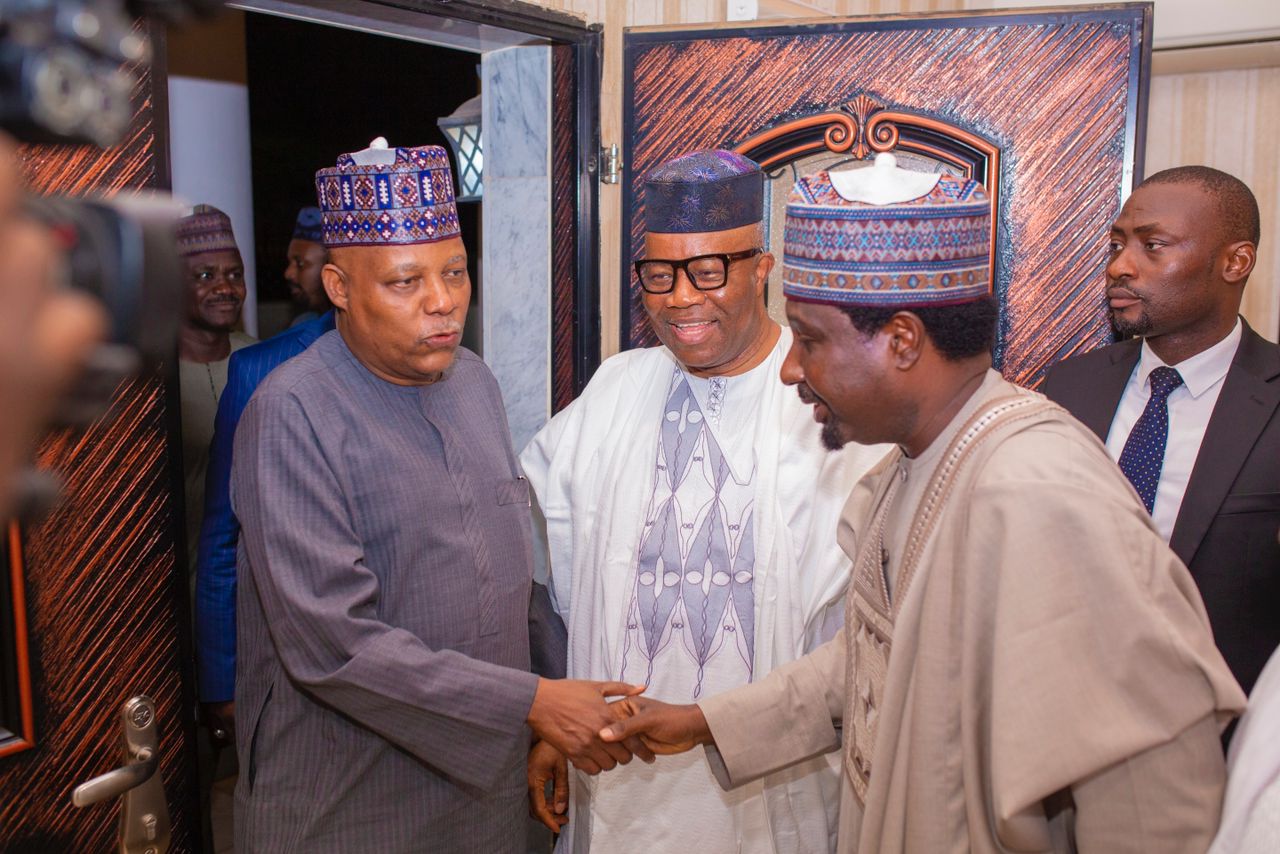Opinion
An epoch-making wedding: A testament to Nigeria’s political tapestry, By Seyi Olorunsola

What was initially billed as the most monumental event in Kano’s recent history is now set to unfold in the heart of Nigeria’s capital, Abuja.
The wedding of the century—a double celebration uniting the families of Senator (Dr.) Barau I. Jibrin, CFR, the Deputy Senate President, with two other illustrious families—has taken a significant turn. This shift in venue from Kano to Abuja is more than a logistical adjustment; it is a profound statement on the political dynamics of our nation and an unmistakable flex of power and influence.
The implications of this relocation reverberate far beyond the ceremonial. Kano, often the center of Northern political gravitas, finds itself momentarily bereft of its political elite, as dignitaries, party stalwarts, and citizens make a pilgrimage to Abuja. From the President, Bola Ahmed Tinubu, to the Vice President, Kashim Shettima, to Governors from several states of the federation, Senators, members of the House of Representatives, captains of industry, and key traditional rulers, the who’s who of Nigeria will converge in the capital city. This wedding is not merely a social occasion but a rare and potent demonstration of political solidarity and alignment across party lines.
READ ALSO :Kano civil servant returns over N40m in misplaced dollars to owner
A Political Showcase in the Capital
The wedding’s significance cannot be overstated. It serves as a showcase of the ruling All Progressives Congress (APC) in its full might, uniting the party’s leadership under a canopy of celebration. It is a chance to observe the inner workings of Nigeria’s power elite, as alliances are reaffirmed, rivalries softened, and new partnerships forged. For a party often challenged to maintain cohesion amidst diverse interests, this occasion underscores its ability to bring together its leaders in an atmosphere of unity and shared purpose.
However, the event’s allure transcends the APC. Politicians from opposition parties, business magnates, and diplomats from across the globe are expected to grace the ceremony, making it a unique platform for dialogue and influence. Abuja’s air is abuzz with the arrival of guests who shape Nigeria’s socio-political and economic landscape. It is as much a wedding as it is a summit of national and regional significance.
The Draw of Power and Prestige
At the heart of this gathering is Senator Barau Jibrin, a figure whose political and social capital has grown significantly. As Deputy Senate President, his influence within and outside the APC has cemented his status as a power broker. This wedding, therefore, becomes an extension of his political narrative, a testament to his reach and relevance within Nigeria’s corridors of power.
The choice of Abuja—Nigeria’s political and administrative nerve center—adds another layer of significance. It allows for greater accessibility to the nation’s decision-makers and highlights the centrality of power. In contrast to Kano’s vibrant streets, which had initially promised a spectacle of tradition and Northern grandeur, Abuja provides a neutral yet potent ground for this event to transcend regional politics and assume a truly national character.
In the midst of the organization and ceremonies is the Minister of State for Housing & Urban Development, Rt. Hon. Yusuf Abdullahi Ata, a political associate of the Deputy Senate President, who will be providing a special hosting arrangement for members of the President’s cabinet – his fellow ministers in the Federal Executive Council – to ensure a smooth flow of activities.
Kano’s Momentary Void
As Kano’s streets lie quieter than usual, it is a stark reminder of the gravitational pull of Abuja’s power. The city’s temporary stillness, as its political and social elite migrate en masse, signifies the wedding’s draw. This movement underscores the pervasive influence of Nigeria’s federal capital, which has long been the ultimate arbiter of political authority.
Yet, Kano’s absence of activity should not be mistaken for diminished significance. The city’s leaders and citizens take pride in their role as originators of the event’s grandeur. While Abuja may host, the roots of this celebration—and its impact—remain deeply tied to Kano’s legacy as a cultural and political powerhouse.
Beyond Celebration: A Political Narrative
The wedding also holds implications for Nigeria’s broader political landscape. It offers a rare opportunity for dialogue across party lines and presents an informal setting for critical conversations. With the President, Vice President, and Senate President under the same roof as opposition figures and international stakeholders, the event becomes a melting pot of ideas, ambitions, and strategies.
For the APC, it is a moment to project strength and unity. The presence of governors from every state, along with federal and state lawmakers, signals a party that understands the optics of solidarity. For the opposition, attendance is an acknowledgment of the power dynamics at play and a recognition of the need to engage with those at the helm of affairs.
A Legacy in the Making
As the day approaches, Abuja’s hotels are fully booked, its streets bustling with activity, and its residents preparing to witness history. This wedding will not only unite two families but will also leave an indelible mark on Nigeria’s political and social history. It is a reminder of the intricate interplay between power and culture, where even personal milestones become national events.
In the end, while Kano momentarily steps aside, its spirit and influence loom large over the proceedings. Abuja may host the wedding, but Kano remains the heart from which this celebration draws its strength. As the capital lights up with festivities, Nigeria watches, knowing this is more than a wedding—it is a statement of power, unity, and the enduring significance of tradition in our national story.
Hon. Seyi Olorunsola is a writer and commentator on national events.





















